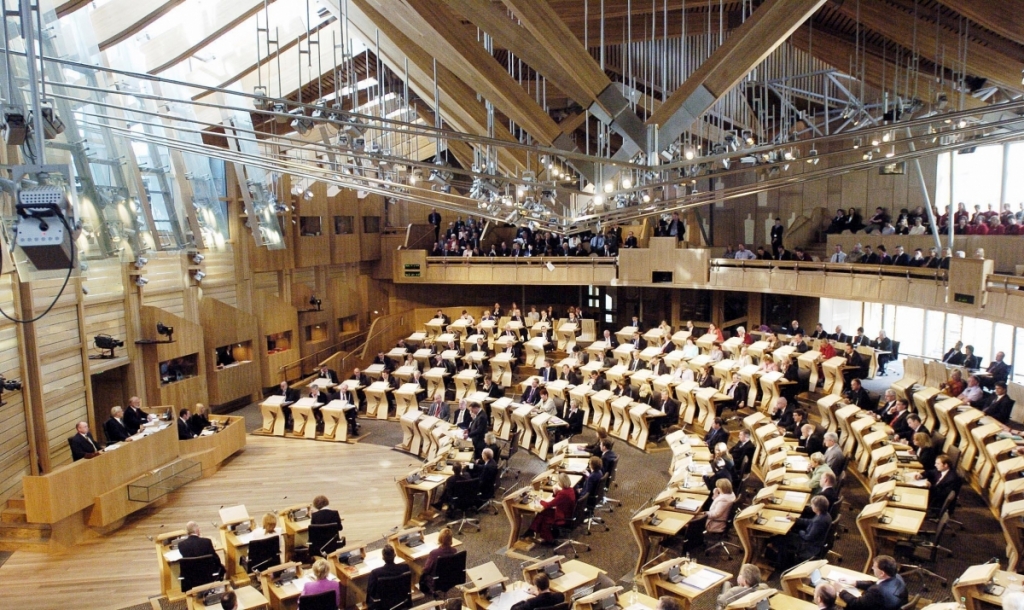-
Tips for becoming a good boxer - November 6, 2020
-
7 expert tips for making your hens night a memorable one - November 6, 2020
-
5 reasons to host your Christmas party on a cruise boat - November 6, 2020
-
What to do when you’re charged with a crime - November 6, 2020
-
Should you get one or multiple dogs? Here’s all you need to know - November 3, 2020
-
A Guide: How to Build Your Very Own Magic Mirror - February 14, 2019
-
Our Top Inspirational Baseball Stars - November 24, 2018
-
Five Tech Tools That Will Help You Turn Your Blog into a Business - November 24, 2018
-
How to Indulge on Vacation without Expanding Your Waist - November 9, 2018
-
5 Strategies for Businesses to Appeal to Today’s Increasingly Mobile-Crazed Customers - November 9, 2018
MPs approve Scotland Bill amid criticism it falls short of Smith agreement
SCOTLAND took a massive step forward last night in taking control of most of its welfare and income tax after the historic Scotland Bill passed its final stage in the House of Commons.
Advertisement
Opening the debate, Scottish secretary David Mundell insisted the government had listened to arguments and concerns about the legislation before bringing forward the changes.
He added: “The government’s amendments will strengthen the Scotland Bill’s provisions and clarify its delivery of the Smith Commission agreement”.
SNP MPs today made a last-ditch attempt to amend the Bill so as to give Holyrood full control over whether and when to call another referendum on Scottish independence.
But Scottish Secretary David Mundell said there could be “no reasonable doubt” that the Government had delivered on the agreement and “the vow” and that now the Scottish Government and Parliament will be more responsible and accountable. Although the Scottish National Party maintained that the bill did not meet the Smith Commission recommendations, the party did not oppose the bill.
Scottish ministers had a duty to provide costings for any proposed welfare changes ahead of next May’s Holyrood election, he said.
However, the party failed to call a vote on their own amendment to deliver full fiscal autonomy despite claiming this was the will of voters in Scotland.
Before the main debate began, SNP frontbencher Pete Wishart condemned the Government’s handling of the Bill. He added: “Nicola Sturgeon tells us in public that she respects the result of the last referendum but her representatives in Westminster are quietly plotting to disrespect the result”. He said: “Scotland is watching these proceedings and it will just not understand the gross disrespect shown to our nation…it will feel like Scotland has been given an almighty slap in the face and told to just get on with it”.
A Scotland Office spokesman confirmed the UK Government will vote against the SNP’s amendment, saying it was not part of the Smith Commission deal.
Explanatory notes lodged with the SNP amendment state: “This new clause would permit the Scottish Parliament to decide whether and when to hold a referendum on Scottish independence”.
“We are also pleased to see that the bill has been changed to include a requirement for a referendum in Scotland should a future United Kingdom government wish to abolish the Scottish Parliament and the Scottish government”.
“These powers create an incredible opportunity for Scotland, and we need politicians with the political will to use them”.
Mr Robertson slammed the Government for only allowing six hours for the final stages of the Bill to pass through the Commons and criticised Labour and Tory MPs for failing to turn up in numbers to debate the measures.
This would enable MSPs to reverse George Osborne’s planned cuts to tax credits but Scottish ministers would have to find the additional cost from their own funds.
Christine McLintock, president of the Law Society of Scotland said the passing of the bill was a “significant milestone”.
Advertisement
“The Smith commission reflects on the sovereign right of the people of Scotland “to determine the form of government best suited to their needs”, and clearly sets out that Scotland should not be prevented from becoming an independent country, should the people of Scotland so choose”.





























